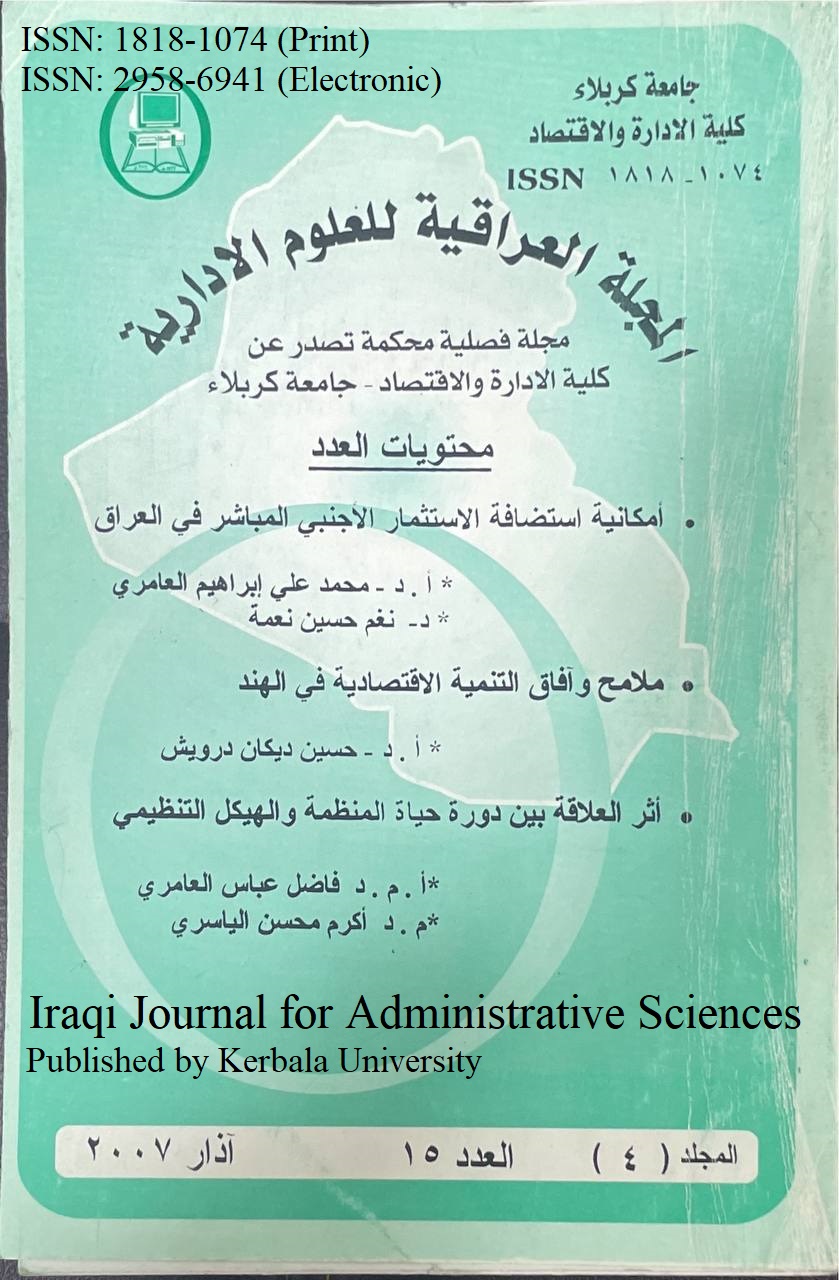The possibility of hosting foreign direct investment in Iraq
Keywords:
direct foreign investmentAbstract
The first beginnings of foreign direct investment in Iraq were linked to the discovery of oil there in 1927, and the desire of the Iraqi government at that time to implement advanced development projects. Given the weakness of Iraqi capabilities during that period, it sought help from foreign companies, and this relationship deepened after 1950 when it signed a profit-sharing agreement with oil companies. Foreign Affairs in 1952. The Iraqi economy entered a new stage of development and development after the establishment of the Reconstruction Council pursuant to Law No. (33) of 1950, as it sought help from many foreign companies in implementing development projects in Iraq by concluding contracts and agreements with them, such as the German Zeppelin Company, which implemented the Tharthar project, and the Society Eutime Her Company. The French company SITE, which implemented the Habbaniyah project, the Italian companies George Wimpy and Comstra, which implemented the Baghdad-Basra road, the French company Domez, which established the Dukan project, the Emutia Casal company, which is responsible for the natural fertilizer project, and the Ibasco company, which is responsible for the natural gas pipeline project, as well as many other foreign companies that entered Iraq. At that time, a number of projects were implemented. However, after the political change in Iraq since the sixties of the last century, a new phase of dealing with foreign companies and investments began, as the Iraqi government began to confiscate and nationalize foreign companies present in Iraq, and a shift was made towards socialist countries in implementing development projects instead of Western countries. . Therefore, the distribution and granting of investment opportunities to foreign companies is now done according to a purely political perspective and not according to economic and technical considerations, which is what characterized the subsequent stage. Accordingly, we can describe that stage, which extended from the years 1963-2003, as a stage of complete rejection and prevention of any relationship between Iraq and foreign companies and investments. This can be inferred from the Iraqi laws that completely prohibited any foreign activity or participation in the Iraqi economy under the justifications of maintaining... Economic independence, disengagement from developed countries, protecting national wealth, and ensuring protection for the growth of an Iraqi national industry. Accordingly, many legislations were issued prohibiting any contribution of foreign investors to the sectors of the Iraqi economy, including the Iraqi Companies Law No. (36) issued in 1983, which prohibited any contribution by companies and foreign investors by investing money or owning shares in Iraqi companies, and also preventing the establishment or participation in Iraqi companies. Any Arab company with a percentage of foreign capital participation
Downloads
Published
How to Cite
Issue
Section
License
Copyright (c) 2007 College of Administration and Economics - University of Karbala

This work is licensed under a Creative Commons Attribution-NonCommercial-NoDerivatives 4.0 International License.
Authors retain the copyright of their papers without restrictions.










